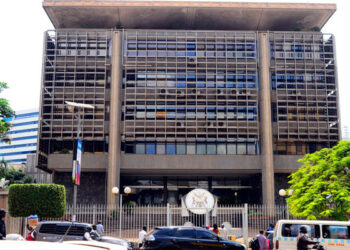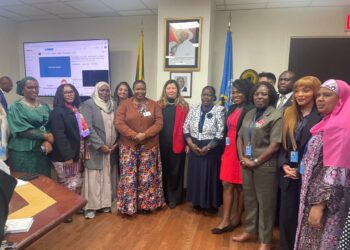BERLIN/KIGALI/KINSHASA – German football giants Bayern Munich have confirmed they are closely monitoring the deteriorating situation in the Democratic Republic of the Congo (DRC) after growing international criticism of Rwanda’s alleged involvement in the conflict. The club, which has a sponsorship deal with Rwanda’s tourism board under the “Visit Rwanda” campaign, has sent two employees to Kigali to assess the situation, Bayern CEO Jan-Christian Dreesen revealed in an exclusive interview with DW.
“The crisis in eastern DRC is attracting global attention. We are following developments closely,” Dreesen stated. “Given the concerns raised, we have sent two employees to Rwanda to better understand the situation.”
This comes after the Congolese government intensified diplomatic pressure on European football clubs associated with the “Visit Rwanda” sponsorship, urging them to reconsider their partnerships with Kigali. DRC’s Foreign Minister, Thérèse Kayikwamba, has formally petitioned Bayern Munich, Arsenal, and Paris Saint-Germain (PSG), arguing that their sponsorship deals indirectly promote a government accused of supporting the M23 rebel group, which Kinshasa accuses of committing atrocities in eastern DRC.
“We cannot allow global sports institutions to be used as tools of propaganda for a government that is accused of committing genocide against the Congolese people,” Kayikwamba said in a statement. “European football clubs must understand that by wearing jerseys with ‘Visit Rwanda,’ they are legitimizing a regime that backs a group responsible for war crimes.”
The Congolese government has accused Rwanda of using the M23 rebel group as a proxy force to advance its economic and security interests in eastern DRC. The allegations have gained traction internationally, with the United Nations, the United States, and the European Union all linking Rwanda to the M23’s military operations. The rebel group, which captured Minova, Saké, and Goma in recent weeks, has been accused of mass killings, sexual violence, and displacing hundreds of thousands of civilians.
The petition by DRC’s foreign minister has sparked renewed scrutiny of football sponsorships linked to authoritarian governments. Arsenal and PSG, both of whom feature the “Visit Rwanda” logo on their jerseys, have yet to publicly respond to the Congolese request. However, Bayern Munich’s decision to dispatch officials to Rwanda suggests the club is taking the criticism seriously.
This development comes just months after similar backlash against Saudi Arabia’s sports investments and Qatar’s role in football sponsorships, raising ethical concerns over clubs aligning with governments accused of human rights violations.
For Rwanda, the “Visit Rwanda” campaign is a key part of its global branding strategy, positioning itself as a top African tourist destination. Kigali has strongly denied any involvement in the DRC conflict, dismissing Kinshasa’s accusations as propaganda meant to divert attention from internal failures.
However, as the conflict escalates and international condemnation grows, pressure is mounting on European football clubs to reassess their partnerships. Human rights groups have also joined the call, with Amnesty International and Human Rights Watch urging clubs to conduct due diligence before accepting sponsorships from governments linked to conflict zones.
The eastern DRC conflict has plunged the region into one of the world’s worst humanitarian disasters. According to the United Nations, more than 7 million people have been displaced, with the recent M23 offensive exacerbating an already dire situation. Reports from Goma and Bukavu indicate severe shortages of food, medical supplies, and shelter, while ongoing fighting continues to put civilians at risk.
South Africa, which has deployed troops under the Southern African Development Community Mission in the DRC (SAMIDRC), recently suffered casualties in the conflict, with President Cyril Ramaphosa calling for an immediate ceasefire and withdrawal of external forces from DRC.
The question now is whether global sports institutions, including Bayern Munich, will take a stance on the issue. As calls for accountability grow, European football clubs are finding themselves drawn into one of Africa’s deadliest conflicts—a crisis far removed from the pitch but one that may shape their global reputations in the years to come.
Do you have a story in your community or an opinion to share with us: Email us at editorial@watchdoguganda.com













